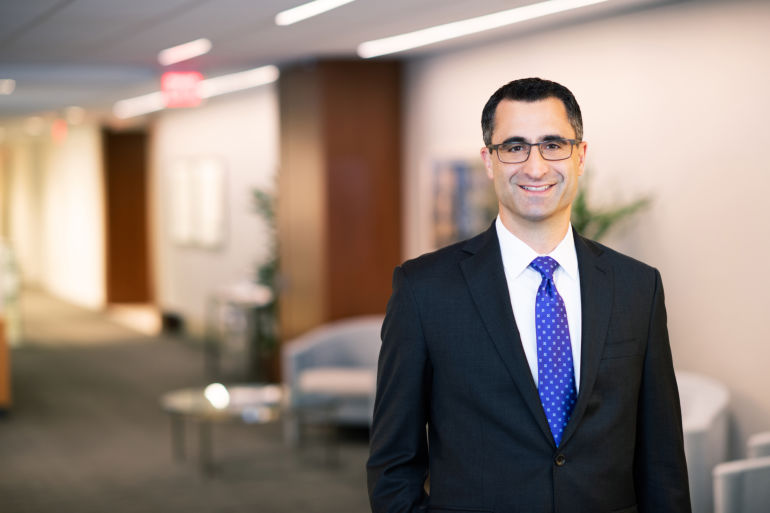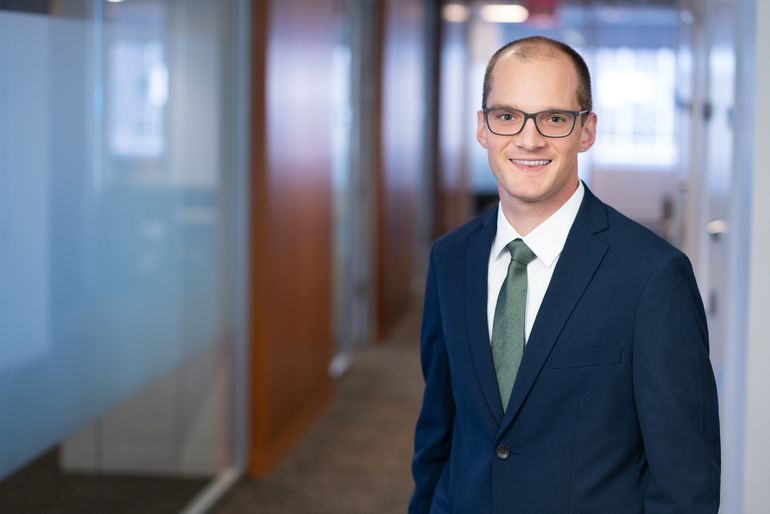
The federal wire fraud statute has always been a favorite of federal prosecutors. The statute prohibits individuals and companies from using deceit or false statements to defraud others out of their money or property.1 Through the years, prosecutors have taken increasingly expansive views of what counts as “property” under the law. Those interpretations have allowed them to use the wire fraud statute to prosecute a broad swath of deceitful or unethical conduct—even if, for example, the alleged victim of that misconduct did not actually lose any money.
In two decisions issued on May 11, 2023, the U.S. Supreme Court put the brakes on two of the government’s most wide-ranging wire fraud theories. In Ciminelli v. United States,2 the Court rejected the argument that withholding information about a victim’s property counts as harming that property.In Percoco v. United States,3 the Court rejected the theory that private citizens owe the general public a duty of honest services just because those private citizens “control” or “dominate” certain government business. Although both cases involved alleged public corruption in the New York state government, they have important implications for private individuals and companies.
Ciminelli v. United States
Backstory. The Supreme Court’s decision in Ciminelli focused on the “right-to-control” theory of fraud. That theory, as adopted and developed by the Second Circuit, interpreted “property” under the wire fraud statute to include the right to control property. Abstracted a little further, the right to control property also included the right to have “the information necessary to make discretionary economic decisions” about the property.4 Deceitfully depriving a counterparty of that information during a transaction counted as harming its property rights and amounted to a federal crime. That was true even if the counterparty got what it was contractually entitled to,5 and even if the supposed victim ended up even better than it started.6
The Case. The facts of Ciminelli demonstrate how the government charged cases under the right-to-control theory. Louis Ciminelli ran a construction company, and he sought lucrative contracts as part of the New York governor’s initiative to invest $1 billion into Buffalo, New York. A non-profit called Fort Schuyler Management Corporation administered and awarded the initiative’s development projects. Through an intermediary, Ciminelli worked with a member of the nonprofit’s board of directors to put conditions into the requests for proposal that ensured that only Ciminelli’s company qualified as a “preferred developer.” Unsurprisingly, as the only “preferred developer,” Ciminelli secured the largest and most prestigious project, a contract worth $750 million.
Ciminelli’s scheme was eventually discovered, however, and he was indicted for wire fraud. The government relied solely on the theory that Ciminelli had harmed the nonprofit’s right to control the development contracts by depriving it of economically valuable information—i.e., the fact that the contracting process was rigged to steer the non-profit towards Ciminelli. The government did not argue that Ciminelli failed to develop the project as promised or that he otherwise cheated the nonprofit out of value. Still, the jury convicted, and the Second Circuit affirmed Ciminelli’s conviction.
The Supreme Court unanimously reversed. It reiterated that the federal fraud statutes are limited to protecting “traditionally recognized property interests”—things that had “long been recognized as property when the wire fraud statute was enacted.”7 Those protected property interests did not include “potentially valuable economic information.”8 As such, in a dramatic narrowing, the Supreme Court held that the federal fraud statutes do not protect the “right to control” or any other intangible right, with the sole statutory exception of the right to honest services (discussed below in Percoco).
Key Takeaways
- Companies and individual can no longer be criminally liable for misstatements made during contract negotiations that do not cause pecuniary damage or otherwise harm a traditional property interest.
- Ciminelli creates some national uniformity regarding the wire fraud statute. For example, although right-to-control fraud prosecutions were thriving in the Second Circuit, the Ninth Circuit had rejected that theory over 30 years ago. New York, California, and the rest of the country will now follow the same rule.
- Time will tell how much impact Ciminelli has on prosecuting decisions. Although the right-to-control theory was the easiest way for federal prosecutors to charge fraud in cases where a defendant lied but also provided value to the victim, it was not the only theory. Perhaps portending its next-best theory, the government conceded in briefing in Ciminelli that the right-to-control theory was probably overexpansive, but it asked the Court to instead affirm on an alternate theory: that property fraud occurs when a defendant fraudulently induces a victim to enter into the transaction.9 The Court declined to consider that argument, which will likely be presented to the lower courts if the government retries Ciminelli.
Percoco v. United States
Backstory. As noted above, the federal fraud statutes also criminalize “depriv[ing] another of the intangible right of honest services.”10 Although the phrase “honest services” is somewhat vague, the Supreme Court in 2010 held that the statute applies only to “the paradigmatic cases of bribes and kickbacks.”11 Honest services fraud can occur in the public sector (e.g., bribing a government official to act against the interest of his or her constituents) or in the private sector (e.g., giving an employee kickbacks to act against the interest of his employer). In 1982, the Second Circuit ruled that public sector honest services fraud applied not just to government officials but also private individuals who exercised “de facto control” over government decisions or “dominated government.”12
The Case. The Second Circuit’s special rule for charging private individuals with public-sector honest services fraud came into play during the prosecution of Joseph Percoco. Starting in 2011, Percoco had served as New York Governor Andrew Cuomo’s Executive Deputy Secretary. In April 2014, he stepped down to run the governor’s reelection campaign. Eight months later, after the Cuomo was reelected, Percoco resumed his post in government. During Percoco’s brief hiatus from office, however, he accepted $35,000 from a real estate developer in exchange for convincing a senior official at a state agency to drop certain requirements from the real estate developer’s state funding.
These events eventually came to light, and federal prosecutors charged Percoco with honest services wire fraud. At trial, the court instructed the jury that Percoco could be guilty if 1) “he dominated and controlled any governmental business,” and 2) “people working in the government actually relied on him because of a special relationship he had with the government.” The jury convicted him, and the Second Circuit affirmed his conviction.
Again, the Supreme Court unanimously reversed. Invoking the principle that the term “honest services” needs to be clearly defined, it rejected the district court’s two-part test for whether Percoco owed honest services to the public while acting as a private citizen.13 It considered “domination” to be an insufficiently concrete standard, one that might swallow everything from party leaders and effective lobbyists to old friends and respected predecessors. On the other hand, the Court rejected Percoco’s argument that private citizens can never owe the public a duty of honest services.14 It noted that such a duty might arise if an individual is delegated authority to act on behalf of a public official or is otherwise an agent of the government under agency law.
Key Takeaways
- The Supreme Court is continuing its efforts to craft narrow limits to the vaguely worded “honest services” wire fraud statute. The trend over recent years suggests that the Court disfavors the statute; Justice Gorsuch and Justice Thomas separately concurred in Percoco to share their opinion that the statute is too vague to be saved.
- For private individuals and entities concerned that their close interactions with the government might result in them owing a duty to the public, this decision serves as mild relief. Although it does not preclude the possibility of a duty arising, it ensures that the trigger for such a duty is more objective (e.g., whether an individual was delegated authority from the government) rather than subjective (e.g., whether an individual “dominated” government business).
- If other courts rely on the legal definition of an “agent” in this context, private individuals and entities have more control over when they owe the public their honest services; they will become agents of the government only if they affirmatively consent or otherwise act in a manner that manifests their assent to act on behalf of the government.15
If you have any question about these decisions or how they may affect you, do not hesitate to reach out to a member of the firm’s white collar crime practice.
[1] The wire fraud statute criminalizes “scheme[s] or artifice[s] to defraud, or for obtaining money or property by means of false or fraudulent pretenses, representations, or promises.” 18 U.S.C. § 1343.
[4] United States v. Binday, 804 F.3d 558, 570 (2d Cir. 2015).
[5] United States v. Johnson, 945 F.3d 606, 613 (2d Cir. 2019).
[6] United States v. Gatto, 986 F.3d 104, 118 (2d Cir. 2021).
[7] Ciminelli v. United States, 598 U.S. ___, slip op. at 6-7 (internal quotation omitted).
[9] Ciminelli v. United States, 598 U.S. ___, Brief for the United States at 12, 31-43.
[11] Skilling v. United States, 561 U. S. 358, 411 (2010).
[12] United States v. Margiotta, 688 F.2d 108, 121-22 (2d Cir. 1982). The Sixth Circuit also adopted the Second Circuit’s test for finding that a private citizen owes a fiduciary duty to the public. United States v. Gary, 465 F.3d 667, 675 (6th Cir. 2006).
[13] Percoco v. United States, 598 U.S. ___, slip op. at 9-10.
[15] Restatement (Third) of Agency § 1.01, Comment d (2005).
Contributors
- Privacy Policy
- Terms of Use
- Accessibility



